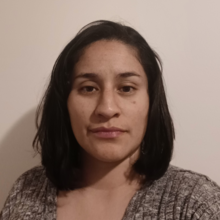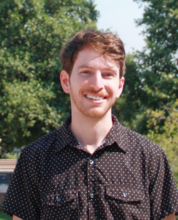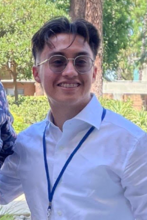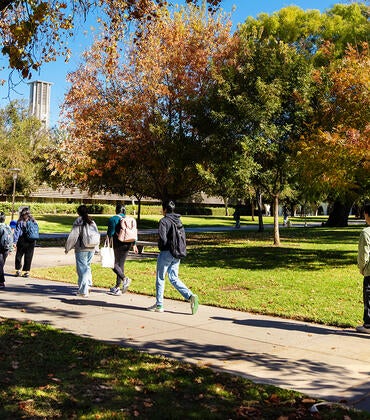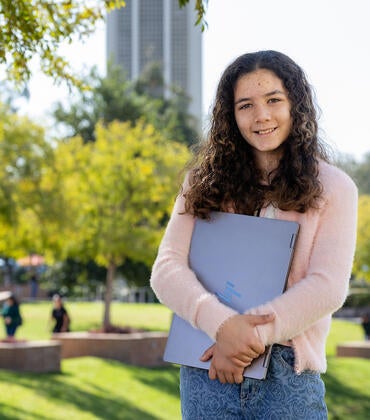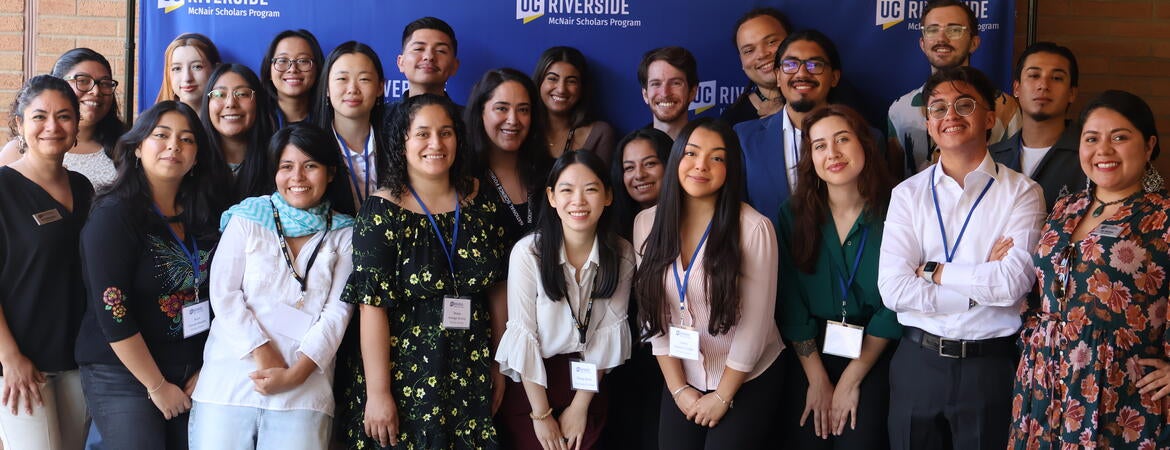
Eighteen undergraduates who’ve set their sights on earning doctoral degrees recently completed summer research programs as part of UCR’s new McNair Scholars program.
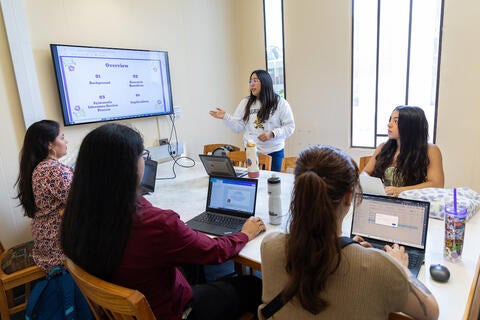
Federally funded by the U.S. Department of Education, the Ronald E. McNair Post-Baccalaureate Achievement Program honors pioneering Black astronaut Ronald E. McNair. It aims to increase doctoral degrees awarded to income-eligible, first-generation, and/or underrepresented students by providing two years of holistic scholarly support, like faculty-mentored research, graduate school application advising, mentorship, and access to resources.
This is the first year the program has been offered at UCR, thanks to a competitive grant awarded to the Center for Educational and Community Outreach Programs, or CECOP, which is part of the TRIO Program in the office of Student Affairs.
“We are excited to launch the McNair Scholars program at UCR — it’s been a true community effort,” said TRIO College Programs director Daisy Rodriguez. “Our inaugural cohort of scholars has shown remarkable dedication to their research and a strong commitment to pursuing doctoral degrees. Our faculty mentors have been instrumental in guiding our scholars in their research, and our dedicated staff have brought creativity and passion to successfully establish the program.”
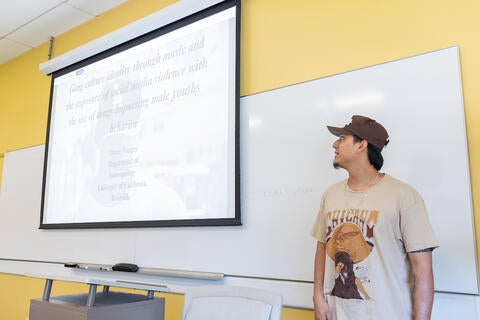
With the first summer program wrapped up, program coordinators are focusing on supporting the students with Ph.D. applications in the STEM, humanities, and social science fields, said McNair Scholars assistant director Ana Guerrero.
“As we continue to grow, we look forward to expanding our collaborations with staff and faculty,” Guerrero said.
The next McNair Scholars application cycle will open in spring 2025. Until then, students can complete this interest form to receive updates. For additional information, contact Ana Guerrero or Daisy Rodriguez.
Three of the 18 undergrads who participated in the inaugural McNair Summer 2024 Research Program share their experiences and lend some advice to future McNair Scholars:
Donna Arteaga Alvarez | CHASS, psychology, class of 2025
Q: What was challenging about the summer research program?
A: It was a fast-paced program, although, in a way, this was a good thing because it allowed for a chance to work under pressure and really rely on time management skills.
Q: How did this program prepare you for your future goals?
A: I learned about the different resources available to help me through the graduate application process like the University Writing Program, which holds workshops and one-on-one mentoring to help students write their statements for graduate applications.
Q: What was your summer research topic and why did you choose it?
A: My research focused on the effect working in older adulthood has on life satisfaction and mental health (e.g., depression) in older Mexican adults. I chose this topic because I found it very interesting, especially since more and more people are working until older adulthood. Therefore, I wanted to examine if there was a difference between employed and unemployed older Mexican adults. It was interesting to find that there were significant differences between these two groups when it came to life satisfaction and depression.
Q: What would you tell a student who is interested in applying?
A: I would encourage them to apply because it truly is an amazing program with lots of great benefits. McNair Scholars program is a holistic program that cares about the student’s success and overall well-being.
Jonah Frazier | CNAS, biochemistry, class of 2025
Q: What was your favorite part of the program?
A: Just how interdisciplinary the program is. It really tested all of our research communication skills at all points, something so vital to our future roles as creators of knowledge.
Q: What was challenging about the summer research program?
A: Mentally compartmentalizing how I was going to start presenting data at the symposium. But some of the most challenging things are also the most rewarding.
Q: What was your summer research topic and why did you choose it?
A: I explored the relationship between epigenetics and cell identity. This was a continuation of my previous work in the lab. Though my main research interest lies in pharmacology, I think this field is exceptionally interesting and much of the skills I gain either directly or indirectly strengthen my future as a pharmaceutical scientist.
Q: What advice do you have for anyone who might be interested in applying?
A: Do it. (And follow up after that interview.)
Steven Torres | CHASS, history, class of 2025
Q: Why did you apply?
A: I applied because I felt it would be beneficial to my professional and academic development. I had always wanted to create a research project that would allow me to further strengthen my skills such as research, writing, and analytical skills. Additionally, I was very enthusiastic about expanding my knowledge of my interests, which include emigrant and urban histories. Another thing that encouraged me to apply was the opportunity to discuss the processes of applying to graduate school. Especially as I am the first in my family to apply to graduate school, having a program that could support me was very important to me.
Q: What was your summer research topic and why did you choose it?
A: My research regards Mexican migrant communities throughout the 1960’s and 1980’s Los Angeles. I analyzed how these communities collaborated and took action in response to major federal immigration policies,. These acts include the Immigration and Nationality Act of 1965 (The Hart-Cellar Act) and the Immigration Reform and Control Act of 1986 (IRCA). I pursued this topic as I had always been interested in Mexican history because of my ethnic background. With much of my family migrating to the U.S. to seek better opportunities, I believe it allowed me to explore my family history and the establishment of historically Mexican communities.
Q: How did this experience prepare you for future goals?
A: I am far more informed and knowledgeable about graduate school and the processes of research. Having exposure to the “hidden curriculums” of graduate school that are not often discussed benefited me so much as I can approach my applications more confidently. Without the program, I would have been less proactive during this current application cycle. I also believe that the program allowed me to further explore research interests that I want to continue learning when I start graduate school and work with faculty that have similar research backgrounds.
Q: What advice do you have for anyone who might be interested in applying?
A: Take the time to reflect and discuss with people like potential faculty mentors as to why you believe the program could benefit you. I strongly encourage this for students who are in any of the humanities majors as it allows you to search your academic interests and how you can apply them to other academic or professional settings. Don’t be afraid to try applying as you will never know until you actually apply. As someone who is very nervous about taking on new opportunities, I am so glad I didn’t hesitate to apply for this program, which has led to an unforgettable experience.
